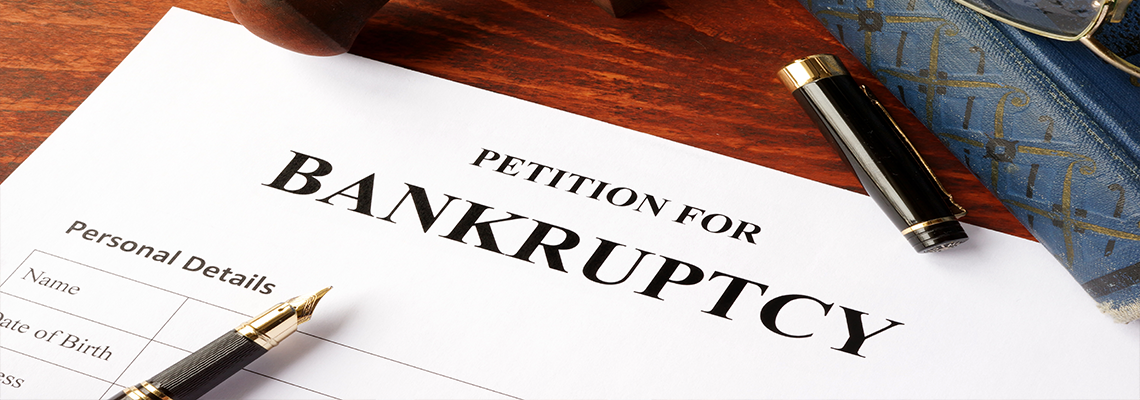
When Is Filing for Bankruptcy a Good Option?
Filing for bankruptcy is often seen as a last resort when a person or entity can no longer meet financial obligations. When debt becomes overwhelming, filing for bankruptcy could be the right answer depending on a person’s unique circumstances. Bankruptcy has successfully helped tens of thousands of Oregonians break free from suffocating debt.
According to the United States District Court for the District of Oregon, there were 6,274 consumer bankruptcy filings in Oregon in 2020. Overwhelmingly most bankruptcy filings pertain to consumers who choose from either Chapter 7 or Chapter 13 bankruptcy.
Although individuals in debt can file for bankruptcy without the help of a legal professional, it is a good idea to consider how a Portland bankruptcy lawyer can help you. Filing for bankruptcy should not be seen as embarrassing or shameful. Rather, by filing for bankruptcy, consumers are taking action to discharge debt in the most feasible, responsible, and safe way possible.
Assess Your Financial Situation Before Filing for Bankruptcy
Filing for bankruptcy is not a decision to be taken lightly. A full and thorough evaluation of personal finances is a good first step before filing for Chapter 7 or Chapter 13 bankruptcy, an act which can be irreversible, and will become a public record. Personal financial considerations that should be discussed with a bankruptcy lawyer before filing include, but are not limited to, the following:
Comparing the amount of income from all sources with total amounts owed to creditors (total combined debt);
Calculating total monthly debt obligations (such as credit cards, mortgages, car loans, installment loans, payday loans, healthcare expenses, tax debt, and student loans);
Determining what bills are overdue and/or in collections and whether collectors are calling or otherwise making contact; and
Evaluating the impact of filing may have on future employment or business opportunities;
Alternatives to filing bankruptcy, and protecting assets from creditors.
A Gresham bankruptcy attorney will discuss all possible options with clients before deciding which path is the best to achieve financial relief.
What Are My Bankruptcy Options?
United States bankruptcy laws allow both individuals and businesses to seek debt relief by filing a petition in court. The two main types of bankruptcy for individual consumers are Chapter 7 (liquidation) bankruptcy and Chapter 13 (repayment plan) bankruptcy.
Chapter 7 Bankruptcy
Chapter 7 bankruptcy is an extremely effective way to eliminate debt. In a Chapter 7 proceeding, an individual’s assets can be sold or “liquidated” to satisfy outstanding debts. However, your assets are most likely exempt from liquidation, meaning that you keep most if not all of the things you own. It is important to consult with an experienced bankruptcy attorney before filing a Chapter 7 bankruptcy regarding your assets. The Chapter 7 process typically takes 100 days to 180 days to complete.
Chapter 13 Bankruptcy
Chapter 13 bankruptcy is a debt relief option that allows individuals to establish a repayment plan approved by the court that enables them to make payments and keep their assets, including those that would be non-exempt in a chapter 7 bankruptcy. The Chapter 13 process typically takes 3 to 5 years, but is often the best option for many people. Each month, individuals make monthly installment payments that are distributed amongst all creditors. Once all amounts due have been paid in accordance with the Chapter 13 bankruptcy plan, and the required amount of time has passed, the court will discharge most unpaid debts, and “close” the bankruptcy.
Debts You Must Pay in Full
Filing for bankruptcy can be life-changing and provide you with a fresh start financially. However, it is important to keep in mind that some debts cannot be forgiven in a bankruptcy proceeding. These debts include the following:
Child support payments
Alimony/spousal support payments
Some Taxes (local, state, and federal)**
Most educational debt/student loans
While some debts are not forgiven, the creditors must agree to payments from a Chapter 13 bankruptcy plan approved by the court.
How Does Bankruptcy Affect My Personal Assets?
As previously stated, Chapter 7 bankruptcy is the best option to eliminate debt quickly, but to achieve financial relief quickly, an individual may have to agree to sell or liquidate non-exempt personal assets. Such assets may include homes, other real estate or land, luxury vehicles, and anything else, that is not otherwise protected, of value that can pay off debt. You should speak to an experienced bankruptcy attorney regarding your assets before filing a Chapter 7 bankruptcy. Most debtors contemplating a Chapter 7 bankruptcy will have no assets at risk of liquidation.
Lyndon Ruhnke, P.C. Can Help You Eliminate Debt
Filing for bankruptcy puts the pause on creditor harassment and the stress of falling further behind on your bills each month. To find out whether bankruptcy is right for you or whether another debt relief option may better suit your situation, contact bankruptcy attorney Lyndon Ruhnke today. Lyndon Ruhnke, P.C. serves clients throughout Oregon, with offices located in Portland, Gresham, and Beaverton.
** Income tax debts can be discharged under certain circumstances, at a minimum the tax return responsible for the tax debt should have been filed more than two years before the bankruptcy filing, the tax return responsible for the debts must have been due more than three years prior to filing, including extensions, and the tax debt cannot have been reassessed in the last 240 days prior to filing.
